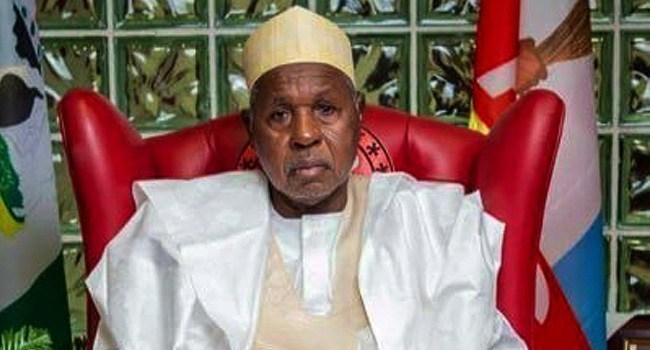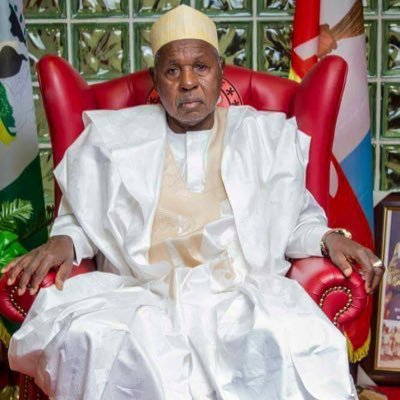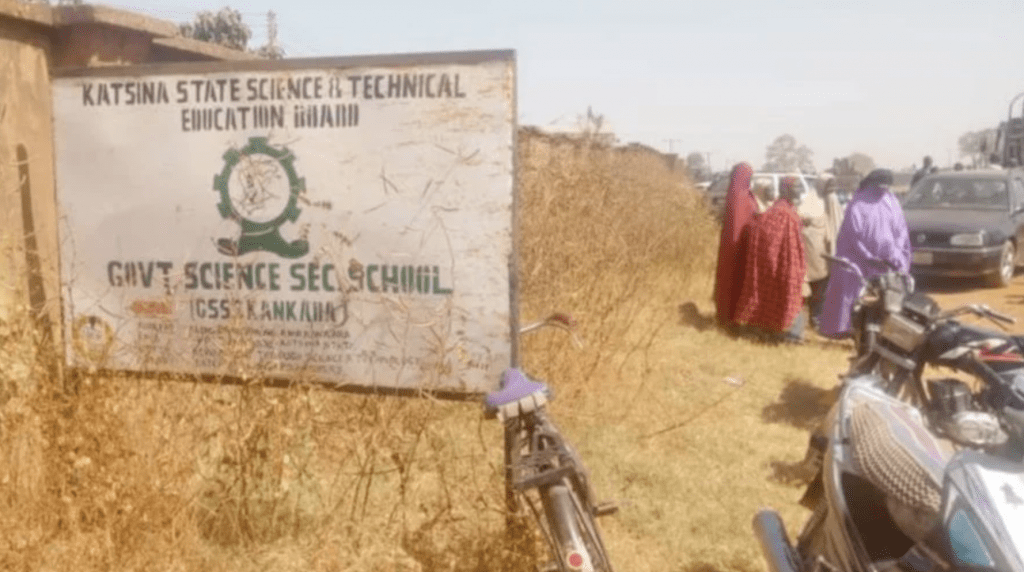
The Katsina state governor, Aminu Bello Masari has confirmed to CNN reporters that he and the government know where over 300 kidnapped school boys are kept. He said that via reliable intelligence, they have confirmed that the school boys were presently kept in the forests of Zamfara state.
The governor made this disclosure during a live interview with the Cable News Network (CNN).

The full report according to CNN below:
(CNN) – The location of 337 students who were unaccounted for after gunmen attacked a school in northwestern Nigeria on Friday, is now known by government authorities, according to state governor Aminu Bello Masari. Talks are ongoing to secure their release and the children are safe, he told CNN’s Becky Anderson on Wednesday.
“We’re not hearing any concrete demand, but we’ll make sure that the children are simply back home,” he said. “All the areas have been secured but the security forces here are not firing because we want to make sure that… we don’t get any collateral damage.”

Local police said a large number of attackers riding motorbikes ambushed the all-boys Government Science Secondary School in Kankara, Katsina State, last week. The attack may have been a kidnapping-for-ransom attempt, they said.
There have been varying estimates of the number of children kidnapped from the school. Government officials said it was difficult to accurately track the numbers, as some children ran away during the attack and others escaped and made their way back to villages and to the school through the weekend.
“We [the government] are ultimately responsible,” said Masari.
Kankara
A man claiming to be a leader of Boko Haram said on Tuesday the terror group was responsible for the kidnapping, according to a short audio message shared with Nigerian media and reviewed by CNN.
“I am Abubakar Shekau and our brothers are behind the kidnapping in Katsina,” said the man in the recording. Shekau is the leader of one of Boko Haram’s factions.
Masari did not dismiss the voice note entirely but cautioned that “more concrete evidence” was needed before it could be confirmed that Boko Haram was involved.
The kidnappers have not made a direct demand yet, but a child of a teacher who was among the kidnapped contacted his father. He only complained about the air force flying overhead and mentioned they may need money.
When asked if he would pay a ransom, Masari said it’s not “the policy of our government” to do so.
“We’ll find other ways of securing the lives and the freedom of the children,” he added.
The kidnapping is outside Boko Haram’s usual area of activity. Their operations have generally focused in the northeast of the country, though security analysts believe that their reach has shifted after a security crackdown in that region.
There have been multiple kidnappings for ransom in Katsina State in recent years, but not on this scale.
Several witnesses told CNN that those who targeted the school were Fulani gunmen, an ethnic group that has been involved in kidnappings and criminal activities in the area.
Shekau’s faction of Boko Haram was behind the 2014 kidnapping of nearly 300 schoolgirls in Chibok. Their captivity lasted years and many of the children were never returned after a negotiated release.
In 2018, a breakaway faction of Boko Haram known as ISWAP kidnapped more than 100 girls in Dapchi. All but one was released weeks later, after negotiations.
While these are the most high-profile examples, Boko Haram has abducted well in excess of 1,000 children since 2013, according to UNICEF.
“We are now responsible and will live up to our responsibility of ensuring and making sure that we do the best we can to safeguard the lives of our people and now [the] priority is to make sure that these children are safely back into their families and back into school,” Masari said.
Amnesty condemned the attack on Wednesday and said it was a “serious violation of international humanitarian law” which “undermines the right to education for thousands of children in northern Nigeria.”
CNN’s Caroline Paterson contributed to this report.
